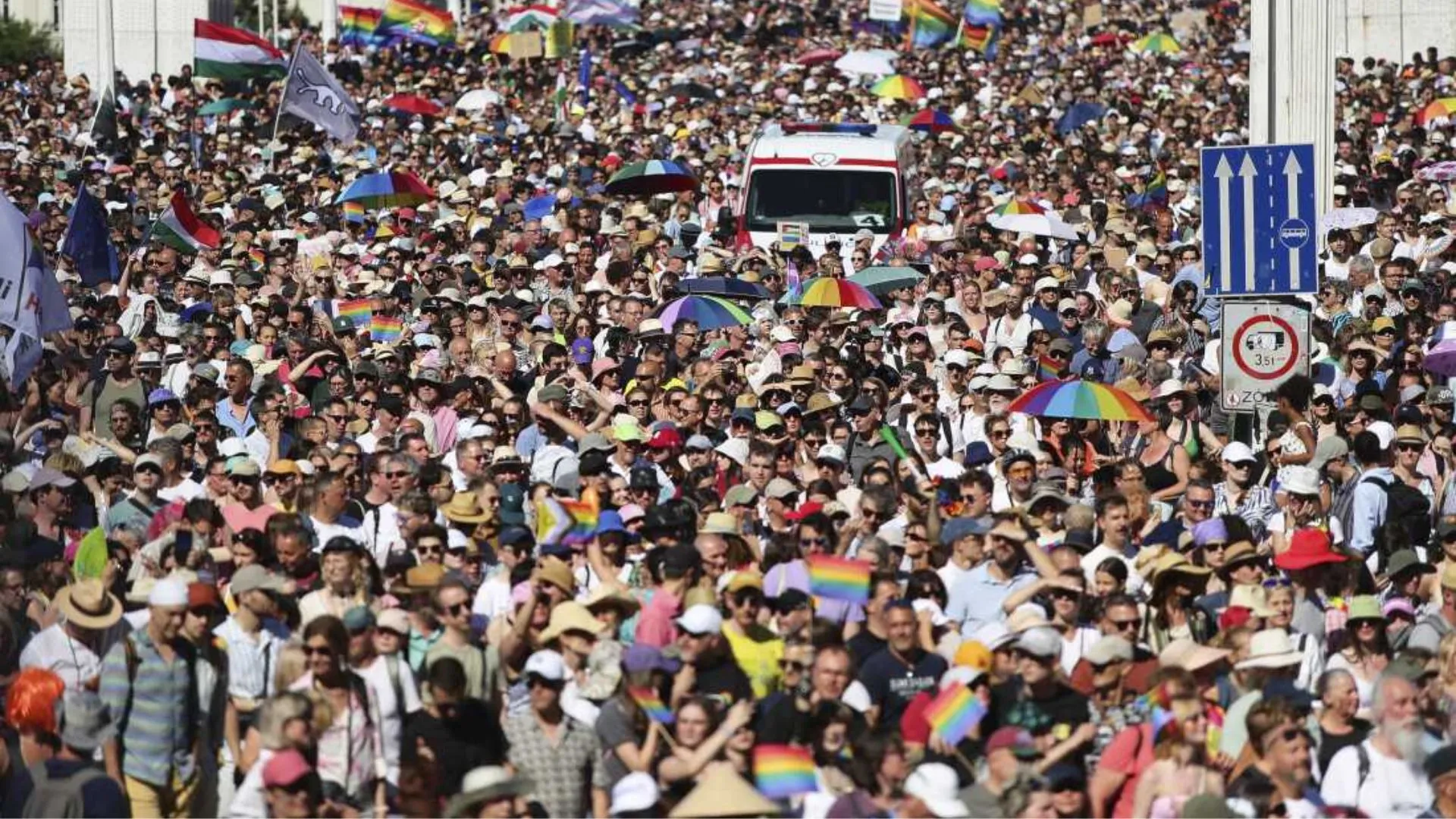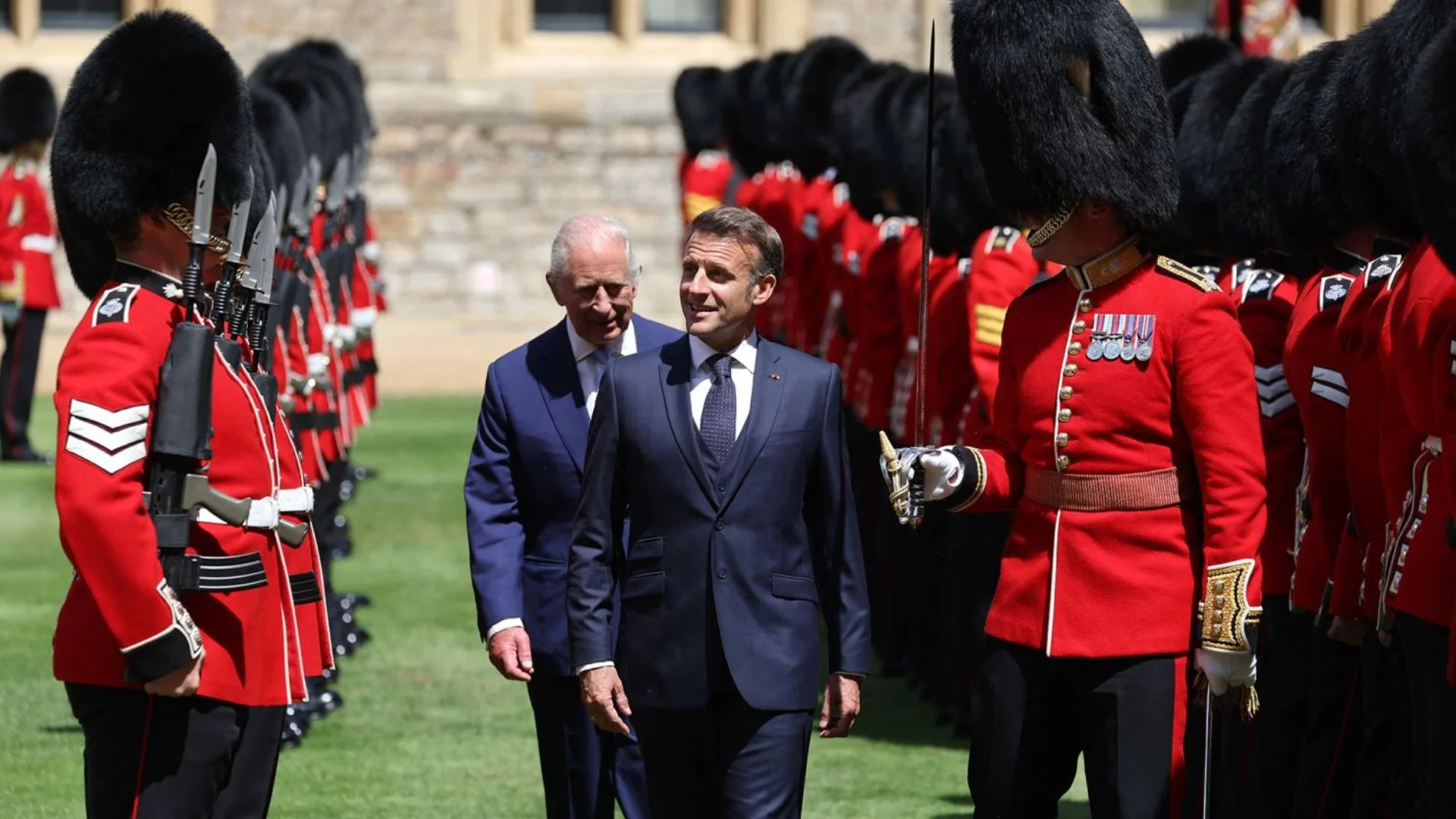Despite a government-backed attempt to block the event, Budapest Pride 2025 went ahead in full force, transforming the city into a powerful display of resistance and celebration. An estimated 100,000 to 200,000 people poured into the streets in sweltering heat, undeterred by police restrictions and political threats.
From waving rainbow flags to chanting slogans against PM Viktor Orbán’s conservative policies, marchers flooded the capital with energy and defiance.
What would normally be a 20-minute walk turned into a three-hour spectacle of unity, joy, and protest, as the crowd moved from Pest to Buda across the iconic Elizabeth Bridge, reclaiming public space in the name of freedom and human rights.
Budapest Pride As A Way Of Protest
Many attendees said they joined this year specifically to protest PM Viktor Orban’s attempted ban. “In my history class, I learnt enough to recognise a dictatorship,” read one banner. Another boldly said, “I’m so bored of Fascism.” T-shirts bearing Orban’s face in drag-style makeup became common symbols of defiance.
This year’s Pride, while rooted in LGBTQ rights, evolved into a broader protest for civil liberties. “We don’t exactly look as though we were banned!”
Budapest’s mayor Gergely Karacsony told the crowd proudly. “We look like we’re peacefully and freely performing a big, fat show to a puffed-up and hateful power. The message is clear: they have no power over us!”
New Law Introduced By Orban
The event challenged Orban’s new law, passed by his Fidesz party, which links homosexuality with paedophilia under the 2021 Child Protection Act. The police used this to justify the attempted ban, claiming the parade could be seen by children. Karacsony countered with an older law giving councils authority to hold public events.
Finnish MEP Li Andersson attended the march and said, “It’s important to emphasise this isn’t just about Pride—this is about the fundamental rights of all of us.”
Though police were present, their approach remained low-key. Temporary surveillance cameras, however, recorded the event, raising privacy concerns under a new law allowing facial recognition and fines ranging from $19 to $430.
Elsewhere in the city, Orban attended a police graduation and defended his administration’s law-and-order stance. Fidesz officials also shared family photos online with captions like “Post a picture, to show them what we’re proud of.”
The courts will soon determine if the mayor and Pride organizers were within their legal rights. “If the courts side with the government, Orban wins,” said analyst Zoltan Kiszelly. “If not, expect more legal changes.” Regardless, Budapest Pride 2025 made its point: they showed up, stood proud, and refused to be silenced.






















